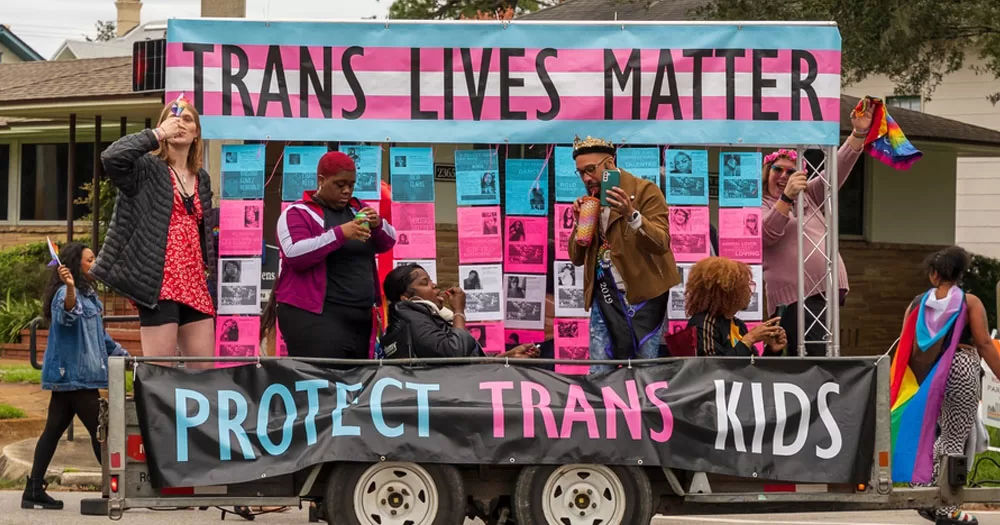In a significant crackdown on LGBTQ+ rights, the UK government has formally announced that it will no longer accept gender recognition certificates (GRCs) from countries that allow self-identification.
On Wednesday, December 6, the Torrie Minister for Women and Equalities, Kemi Badenoch, outlined the new restrictions to the House of Commons, explaining that countries that have adopted self-identification or “less rigorous” policies will be removed from a register of approved jurisdictions.
Delivering the speech, she told MPs, “Today, we are laying an order to update the list of approved overseas countries and territories for parliamentary approval.
“This is long overdue. The list… was last updated in 2011. We are doing this because there are some countries and territories… who have made changes to their systems and would not now be considered to have similarly rigorous systems as the UK.”
While she did not name the newly omitted countries, it is understood to comprise approximately 14, including Canada, New Zealand, Australia and some US states. Ireland is already disqualified from the UK list because its gender recognition process was only introduced in 2015 and is based on self-declaration.
Badenoch explained, “Inadvertently allowing self-ID for obtaining GRCs is not Government policy. It should not be possible for a person who does not satisfy the criteria for UK legal gender recognition to use the overseas routes to do so.”
She concluded, declaring that the UK government is set to review how the words sex and gender are used in law, “I am exploring how we can rectify these issues across the board and provide legal certainty.”
Referring to the ongoing stalemate between Britain and Scotland after Rishi Sunak’s government invoked Section 35 of the 1998 Scotland Act, blocking the Gender Recognition Reform bill, she said, “This will reduce the tensions that have emerged as a result of the confusion around the terms sex and gender.”
Following Badenoch’s statement, Kirsten Oswald of the Scottish National Party asked if there had been an impact assessment carried out on how the new restrictions would affect the health and well-being of those impacted.
She continued her interrogation, saying, “Does she recognise that the UK is travelling rapidly backwards on the rights of LGBT people and that this decision is very much out of step with other progressive countries around the world?”
She concluded, “We need to stop that, she needs to reflect, and she needs to change tact.”
In response, Badenoch said she “completely disagrees” with Oswald, adding, “I think it is extraordinary that she is telling us that (we are) not compassionate. It is her Government in Scotland that was allowing rapists to be housed in women’s prisons while using self-ID as a cover, so I will not accept that.
“We are the ones who are thinking about women’s rights, we are the ones who are thinking about safeguarding, we are the ones who are thinking about vulnerability,” she added.
We will sort it by publishing a draft Conversion Practices Bill alongside the work being undertaken by Dr Hilary Cass.
We will protect clinicians & parents who do children no harm, but prevent processes intended to change someone’s gender identity which do cause serious harm. pic.twitter.com/9gy5gDDXPo
— Kemi Badenoch (@KemiBadenoch) December 6, 2023
In a further damning blow, Badenoch also asserted that she considers gender-affirming care for young people to be “a new form of conversion therapy”.
During her speech confirming the new restrictions on gender recognition from other countries, the UK minister also confirmed the government’s plans to bring forward a bill to ban conversion practices, which seek to change or suppress someone’s sexual orientation or gender identity.
Badenoch cited the case of Bell vs Tavistock, “Girls like Keira Bell, who were rushed on to puberty blockers by the NHS and had a double mastectomy, now regret the irreversible damage done to them. I believe this is a new form of conversion therapy.”
Bell, who began taking puberty blockers when she was 16 and then medically transitioned as an adult, claimed she later regretted this and attempted to sue the Tavistock gender identity clinic where she had received treatment. She argued she had been too young to consent to treatment as a teenager. The court found in favour of Bell but overturned its ruling following an appeal in 2021.
© 2023 GCN (Gay Community News). All rights reserved.
Support GCN
GCN is a free, vital resource for Ireland’s LGBTQ+ community since 1988.
GCN is a trading name of National LGBT Federation CLG, a registered charity - Charity Number: 20034580.
GCN relies on the generous support of the community and allies to sustain the crucial work that we do. Producing GCN is costly, and, in an industry which has been hugely impacted by rising costs, we need your support to help sustain and grow this vital resource.
Supporting GCN for as little as €1.99 per month will help us continue our work as Ireland’s free, independent LGBTQ+ media.
